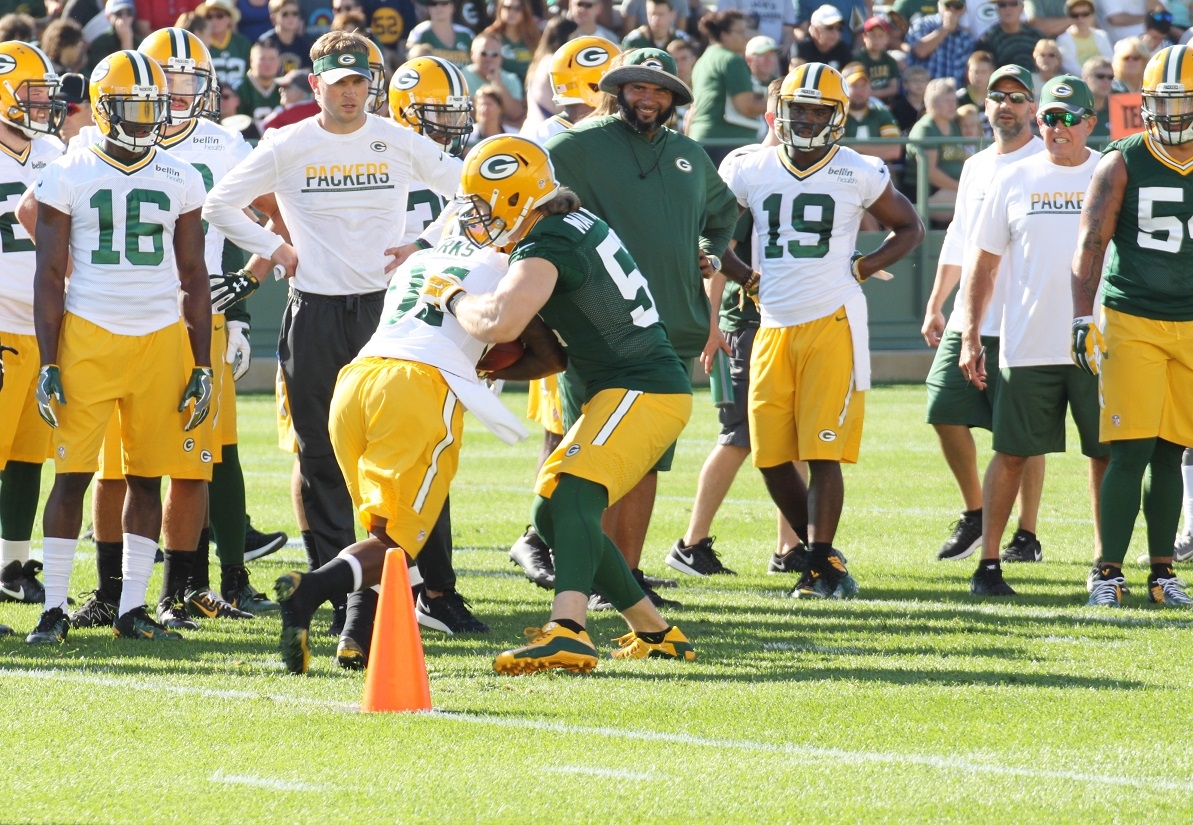
NEW YORK — Troy Vincent has heard, far too often, the No Fun League reference to his sport.
While he finds it a totally inaccurate description, Vincent is confident the NFL will be even more entertaining in 2017.
Why?
“Two topics that I have spent most of the offseason on: pace of play and celebration,” says the league’s executive vice president of football operations and a former star defensive back with the Dolphins and Eagles.
“The commissioner and myself spoke to literally over 200 players about celebration — the majority active, our legends, Hall of Famers, fans, officials — which was critical in our decision. It’s one thing to make an adjustment, then can you teach it, can a player apply it, then can an official officiate it? That’s what you have to look at when you change rules or policies.
“Some of the players’ reactions were, tell me what is wrong with me using a ball as a prop? They simplified things and made us think. Over time, we’ve seen that something is happening and we’ve responded and reacted, and put restrictions on what our fans have grown to love and appreciate: this spontaneity, creativity, and innovation of celebration, and when a great play is made.
“It was a great process. Because it was a good process, we were able to make an informed decision. All stakeholders had a say.”
There will be limits, naturally, to what players can do. Don’t look for any soccer-style, full-team scrums on the sideline or end line.
Nothing demeaning or provocative when using the ball as a prop. No dunking over the crossbar, which apparently has been deemed dangerous (Tony Gonzalez would argue otherwise).
And all of these prop celebrations are allowed only after a touchdown or a change of possession. That’s with the intent to stick to speeding up play, eliminating as much dead time as possible.
Fans at the games will notice that even more than those watching on TV or other devices — particularly fans in frozen stadiums in December.
“That was so important, that we had to make sure we had clarity around dead time,” Vincent said.
“The last thing you want is a player, coach or fan thinking we are trying to disrupt the game. Ball run out of bounds, time after a touchdown, changing of possession, all of this is dead time. When you start analyzing all of the mechanics of that, we realize we need to be much more efficient.”
So the ball will be brought back into play quicker by officials. Players will be pushed to set up more quickly for the next play, especially after scores.
Gone is the dreaded double commercial break; you know, when a team scores, the TV ads follow, then that team kicks off, and the TV ads immediately follow again.
Vincent and other NFL executives got plenty of feedback from players and coaches on that.
“When we analyzed it, we realized that they were absolutely right and everyone is affected,” he said. “The player, the game, the coach, the fans that are watching in the stadium as well as the fans watching from home.”
As a former cornerback and safety charged with ensuring that opponents don’t complete passes, Vincent should find it somewhat ironic that incompletions contribute to the added length of games. As do injuries and lots of penalties.
He also has to feel some pangs when he sees how expedient many offenses are these days.
“Those are the things that can extend the game, but some teams are so efficient,” he said. “They complete all of their passes, they run the ball on the third down, there are not a lot of penalties. Those games are moving at a really good pace, typically.”
Quicker officiating decisions also make a game smoother and faster. With the use of the Microsoft Surface tablet by referees for replay reviews, Vincent is positive it is a major step forward.
“That goes back into pace of play,” he explains. “It’s a technological advancement, but it is also improving pace of play and efficiency. Last year the average time was 2 minutes and 25 seconds on a replay, which is way too long. But this year it was very quick (so far), and that’s how it should be.”
Should the NFL be looking to eliminate the kickoff return given that it’s the source of more injuries than other categories of plays?
Vincent’s eyes widen before he smiles and vigorously shakes his head.
“Special teams is how I got my chance in high school,” he said. “I never (had) played football and in high school I tried out and was returning punts and kicks. You think about the number of players that have started on special teams.
“It is part of the fabric of our game. Just like we have adjusted things on the offensive and defensive side of the game when we look at player safety, just to be clear, we are not looking to take the foot out of the game and our coaches are adamant about that.”
As is the guy who oversees football operations.










